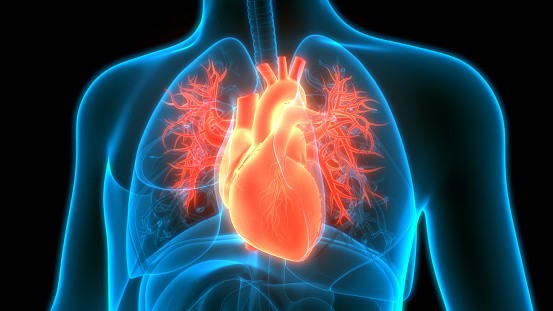
Antiretroviral abacavir linked with cardiovascular events in REPRIEVE trial
MedPage Today highlights UC-led trial analysis
People with HIV who took the antiretroviral drug abacavir (Ziagen) had an increased risk of major adverse cardiovascular events (MACE), according to an exploratory analysis of the REPRIEVE trial presented by the University of Cincinnati's Carl Fichtenbaum, MD, at the International AIDS Conference.
MedPage Today highlighted the findings that past use of abacavir increased the risk of MACE by 50% and current use increased MACE risk by 42%.
"Hopefully, with newer antiretrovirals and longer-acting therapy, perhaps this will become less and less of a problem as we're able to shift away and use other things to control HIV replication," said Fichtenbaum, professor in the Division of Infectious Diseases in the UC College of Medicine.
"Since there are many other options available — certainly in high-income countries — I think we have to consider the fact that the most important thing is controlling HIV replication, but that where we can, it may be helpful to avoid the use of abacavir," Fichtenbaum continued.
Read the MedPage Today article.
Featured photo at top of illustration of cardiovascular system. Photo/magicmine/iStock.
Related Stories
Phenols, found in many products, could upset heart's rhythms
October 7, 2024
Chemicals called environmental phenols include food preservatives, plastics ingredients such as BPA and the parabens in shampoos, so they are ubiquitous in everyday life. Now, University of Cincinnati research suggests that higher exposure to phenols might trigger changes in the heart's electrical system and rhythms.
Local 12, Business Courier highlight Blood Cancer Healing Center
February 19, 2024
Local 12 and the Cincinnati Business Courier highlighted the University of Cincinnati Cancer Center's Blood Cancer Healing Center, a comprehensive all-in-one facility dedicated solely to advancing research, treatment and wellness for blood cancer patients, opening this summer.
Medical News Today: Gene mutation may be a key to lung cancer treatment
September 21, 2022
Medical News Today highlighted recent research led by the University of Cincinnati's Pier Paolo Scaglioni, MD, that found targeting components of lipid metabolism and synthesis could lead to an effective lung cancer treatment.
